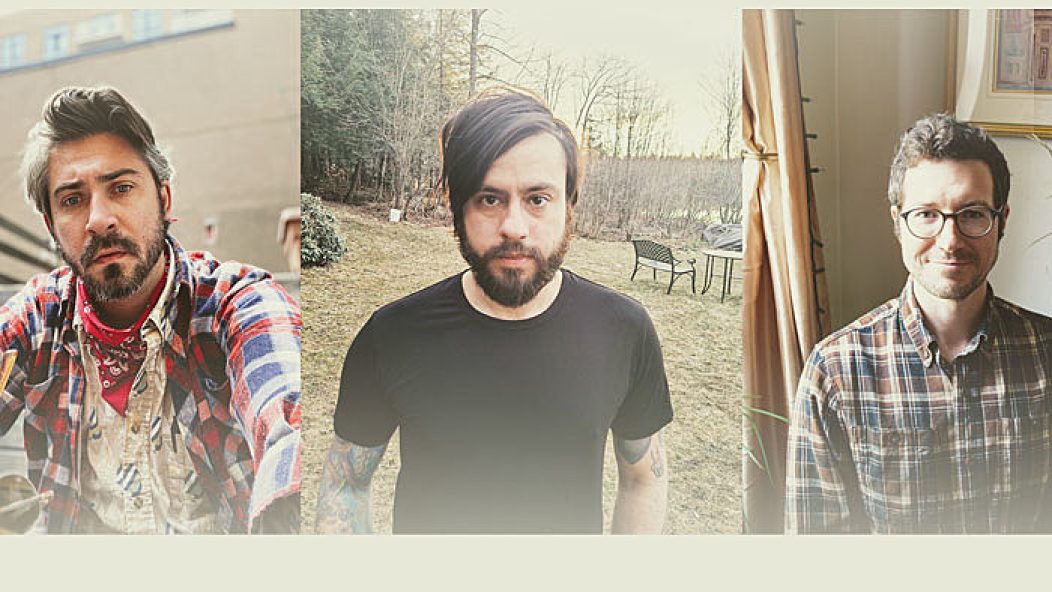
Bloody Your Hands make bad relationships rock hard on their new single
The COVID-19 pandemic has taught us one great lesson. Humans are social creatures, and relationships are both important and fragile. By the sounds of it, Brooklyn, New York rockers Bloody Your Hands know that far too well. Alternative Press is premiering their new track “Insincere Apologies” today, because you can feel depressed and still want to rock the hurt right out.
Vocalist/guitarist Jameson Edwards doesn’t hide or sugarcoat anything on this track. “Insincere Apologies” appears on Bloody Your Hands’ impending album, Sunday Scaries. And if you’re seeing a theme emerge here, this might be the band for you. “This is a song about relationships, bad patterns, communication breakdowns and all that fun stuff,” he says openly. “It’s based on many situations and many people. It’s hard to be vulnerable, especially when you feel hurt or threatened. At these times, we seldom act our best. Sometimes things just feel hopeless, like yelling at a wall and expecting it to listen.”
You may pre-order Sunday Scaries right here. Need the courage to tell someone how you really feel right about now? Turn up “Insincere Apologies” below.
Read more: Aaron Paul says he thought it “could be interesting” portraying Kurt Cobain
Bloody Your Hands—Edwards, bassist John Walsh and drummer Mike Horaz—deliver loud, brash ’90s guitar-rock vibes with a healthy amount of 21st-century angst. The trio discussed the mindset behind the song, the meaning of the album title and what they hope people take away from their music. We have to admit that seeing the band name and the song title in the same line would make for a pretty shocking lyric.
Is the character in “Insincere Apologies” the one who’s doing the wreckage or the person who’s getting the brunt of it?
JAMESON EDWARDS: The character is based on personal experience. There are lines that refer to certain people or situations, but in the song, this person is both victim and villain. In my case, I probably own more of the “wasted” part, but the “dysfunctional” bit is an even split.
The song has a breezy vibe that’s cool, but then it drops into all kinds of noise and a sing-songy refrain of “wasted and dysfunctional.” Is the whole M.O. to couch dark sentiments in upbeat rock?
EDWARDS: Not exactly. We obsessed over both the lyrics and music but for different reasons. There’s an ebb and flow of intensity between the verse and chorus that mimics the emotional ups and downs of relationships. These swells are predictable yet unavoidable. We know our patterns, [and] we know how we react to things, yet somehow we can’t get out of the way of the freight train. We just brace for impact. On a purely musical note, I love the big fuzz bass in this song. John really nailed the bass tone, and Skylar [Ross, engineer] captured it perfectly. Also, there’s no way to sing “like yelling at a wall” without screaming it. [Laughs.]
The album the song is from is called Sunday Scaries. There has to be a backstory on that, whether it’s a defined state of mind, inside joke or something else.
EDWARDS: There’s definitely a backstory. This is an album about anxiety, isolation, hope, death and struggling with adulthood. It was written over a two-year span that was both brutal and beautiful. It was an honest, awkward and painful self-exploration. “Sunday Scaries” is that feeling of anxiety and dread that you get Sunday afternoon as you contemplate returning to “real life” the next day—work, school, whatever. It usually happens after a few days of partying and having fun. Sometimes it’s purely chemical. But knowing that doesn’t make the crippling depression any less painful. We borrowed that expression for the album title because it just seemed spot on.
What would be the ultimate band compliment? Like, someone who used your music for some reason you’d never thought of? A cardiothoracic surgeon playing it during procedures, dude on a construction site running a high-lift, etc.?
JOHN WALSH: Someone putting it on in their car for a drive alone when they’re having a tough time.
MIKE HORAZ: I’d love to hear that our music spoke to them so much that when they put it on, they felt like they traveled to a better time. I like to think we’re creating a bit of nostalgia. I’d like to know we’re connecting that way with someone who’s brought back to a time they felt great, felt alive…just simply felt.
EDWARDS: Learning that Frank Black was a big fan would be pretty mind-blowing. That, and I’d love to see our songs used in skate videos. That would be a melding of passions for me.







